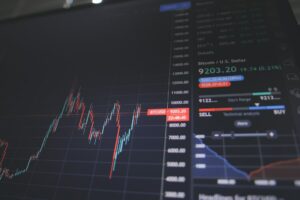Navigating the Complexities of Forex Regulation: What You Need to Know
The foreign exchange market, commonly known as forex, is the largest and most liquid financial market in the world. With a daily trading volume of over $6 trillion, it attracts a wide range of participants, including individual traders, financial institutions, and multinational corporations. However, due to its decentralized nature and global reach, forex trading is subject to complex regulations that vary from country to country. In this article, we will explore the complexities of forex regulation and shed light on what traders need to know.
Forex regulation plays a crucial role in ensuring the integrity and stability of the market. It aims to protect investors from fraudulent activities, maintain fair trading practices, and mitigate systemic risks. The regulatory framework for forex trading is primarily established by governmental bodies, central banks, and financial regulatory authorities in each country. These regulatory bodies set specific rules and guidelines that brokers and traders must adhere to.
One of the key aspects of forex regulation is the licensing and supervision of forex brokers. In most jurisdictions, forex brokers are required to obtain a license from the regulatory authority before they can offer their services to the public. The licensing process involves rigorous screening of the broker’s financial standing, operational capabilities, and compliance with anti-money laundering (AML) and know your customer (KYC) regulations. Licensed brokers are subject to regular audits and are obligated to segregate client funds from their own operational funds, ensuring the safety of client assets.
Regulation also mandates the implementation of risk management measures by brokers. This includes maintaining adequate capital reserves, providing negative balance protection to clients, and offering risk warnings and educational materials. These measures are designed to protect traders from excessive losses and promote responsible trading practices.
In addition to broker regulation, forex trading is also subject to various trading restrictions and requirements. Leveraged trading, which allows traders to control large positions with a small amount of capital, is a common feature in forex trading. However, regulatory authorities often impose leverage limits to protect traders from excessive risk. For instance, in the United States, the maximum leverage allowed for retail forex traders is 1:50, whereas in Europe, it is capped at 1:30 under the European Securities and Markets Authority (ESMA) regulations.
Forex regulation also extends to the protection of client funds. In many jurisdictions, brokers are required to keep client funds in segregated accounts held at reputable banks. This ensures that client funds are kept separate from the broker’s own funds and are not used for operational expenses. In the event of a broker’s insolvency, client funds would be protected and can be recovered by the clients.
However, it is important to note that not all countries have strict regulations in place for forex trading. Some jurisdictions may have lax regulatory frameworks, making them attractive to brokers seeking to operate with less oversight. Traders should exercise caution when dealing with brokers based in such jurisdictions, as there may be a higher risk of fraud or malpractice.
When choosing a forex broker, it is essential to consider their regulatory status. Traders should opt for brokers that are licensed and regulated by reputable authorities. This provides a level of assurance that the broker operates in accordance with industry standards and is subject to regulatory oversight.
Furthermore, traders should familiarize themselves with the regulations specific to their country of residence. This includes understanding the leverage limits, trading restrictions, and investor protection measures in place. Traders should also be aware of any reporting requirements and tax obligations related to forex trading in their jurisdiction.
In conclusion, navigating the complexities of forex regulation is crucial for any trader looking to engage in forex trading. Understanding the regulatory framework, licensing requirements, and trading restrictions is essential to ensure the safety of funds and promote responsible trading practices. By choosing regulated brokers and staying informed about the regulations in their country of residence, traders can navigate the forex market with confidence and peace of mind.





